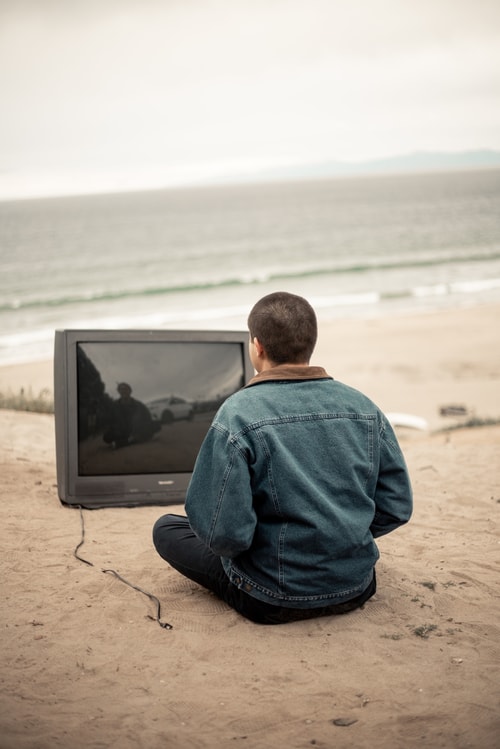Were you one of the disappointed 12.8 million Line of Duty viewers – deflated and disappointed at how Jed Mercurio landed his nail-biting journey for justice with such bland banality?
Genius drama?
Mercurio’s stroke of genius is how he seamlessly stitches fact into fiction, with closing clips on each character’s future fate and references to real life crime scandals. And, in how we permitted a viral hysteria around the fictional “H” to dominate news headlines and social media over the past six weeks.
Along with the nation, I became obsessed with Line of Duty. But since the finale, I’ve been asking what it means to be human in the peculiar space between real life issues and fictional drama.
The nation demanded a finale of die-hard drama. We craved justice done and corruption ended. However, Mercurio’s finale exposes the harsher realities that:
- corruption is neither four bad men or one single event, but exists at all levels;
- widespread corruption is too often sustained by incompetent, couldn’t-care-less corporate cover-ups;
- and a lack of integrity and disregard for truth (as per Ted’s speech – no, not the “wee donkey” one!) is much more pervasive and personal than we’d like to admit.
I wonder if you, like me, squirmed on your seat last Sunday evening at 10pm as Mercurio held a mirror up to the world and exposed the state of truth and integrity in our own human experience. I asked myself if I, like Ted, was ready to deal with its lack within my own life.
Line of Duty was genius because it shone a spotlight of truth and integrity on the nation through our obsession with the drama itself. It exposed how we care, connect, talk, think and Tweet more about the injustices of a fictional dramatised case and person than many of us do about the horrific realities within the human systems, structures and society we all inhabit in real time.
Mercurio’s Line of Duty finale has cautioned, tried and found most of us guilty. Guilty of losing our image-bearing humanity between the lines of fact and fiction.
Fact or fiction – who cares?
Do you remember the newspapers’ passionate campaign to “Free Deirdre Barlow”? Have you separated the blurred Royal family dramas of Oprah and The Crown? Or how did you respond to the racial reworking of real characters and events in Bridgerton?
You might be thinking, it’s just entertainment, we all need escapism in this season. So why am I concerned?
Personal: the digital integration between humanity and screens has intensified during coronavirus. We have worked, shopped, socialised, exercised, worshiped – and binged Netflix – all in the same digital space. Screen immersion can numb us to the injustice, violence and suffering that exist beyond the screen. When we escape into entertainment on our screens we can slip into apathy and disengagement.
I can easily scroll past a scene of starvation and war in Yemen to a 50 per cent fashion sale within three seconds. I can watch a historical drama in Victorian slums and discard charity images of Bangladeshi slums.
Political: my journalist friend, (not Gail Vella) reminds me that truth is vitally important in the public square, and that good journalism shines a light on the facts and discards the fiction. Blurring the lines between fact and fiction creates the possibility for fake news – where scandalous truths can be passed off as manufactured lies – and manufactured lies can go viral as scandalous truth.
Direct the drama (don’t let it direct you)
Our storied reality
The basis of our Christian faith essentially is a story. A true, good and beautiful story. The Bible, through all its various genres and authors, cultures and chronology, is God’s overarching story – a metanarrative. The God-story takes us on a journey from what should be in the created cosmic order, what happened in the Genesis 3 event, what could be in the person and work of Jesus and His Spirit-filled church and what will be when the cosmos is restored to perfection.
The God-story makes sense of every human experience. These chapters form the lens through which we human beings should make sense of the world around us. This lens helps us understand why we are obsessed with Line of Duty – why we seek justice, yearn for completion, champion the heroes.
Our storied humanity
We are not brains on sticks – stories are the fabric of our human lives and selves. We share, compare and create stories. We each have our own stories, and need reference points to find meaning in them. Stories even disciple us. BBC, Channel 4, Hollywood and Netflix are constantly forming our human hearts and minds, telling us what is a good, true and beautiful human life.
It is up to us to navigate the drama between fact and fantasy using the sharp lens of the God-story.
Stories change things. Jesus dipped between those lines to use creative story-telling. He used fictional scenarios, to engage us with the spiritual reality of what it means to be human. Jesus used storytelling both to unsettle and expose the problems in what was real but also to inspire imagination towards what could be, because of what will be.
Being human in between
I love dramas. Crime. Historical. Thriller. Sci-fi. But I have trained myself to engage with them by knowing, loving and adopting the God-story as my lens. Doing so prevents me from numbing down my human self through escapism but wires me up to be fully, truly human.
A good drama, for me, draws me into the harsh reality of what is. I want a TV drama to unsettle and expose me to real, raw human conditions and issues, for my whole self to experience the desperate disconnect between heaven and earth and to yearn for what should be, could be and will be.
I want it to inspire my imagination for what could be past this heaven-earth disconnect. It challenges me to bear God’s image, and to take responsibility to pray and see kingdom come on earth – because I live for what will be.
Being human in the line of duty
Line of Duty’s finale was a genius wake up call to the viewer to be more fully, truly human in between the lines. In the hype and hysteria about “H”, I had disengaged my God-story lens, disregarded real life issues and escaped into a numbed down human existence. To quote Ted Hastings, I ask myself (and the 12.8 million viewers): “What had happened to us, that we stopped caring about truth, honesty and integrity?” Thank you, Jed Mercurio, for your genius journey with the nation towards justice, truth and integrity, for your spotlight on our humanity – and for drawing those lines of duty, starting right around me.
"Mercurio’s Line of Duty finale has cautioned, tried and found most of us guilty. Guilty of losing our image-bearing humanity between the lines of fact and fiction."



